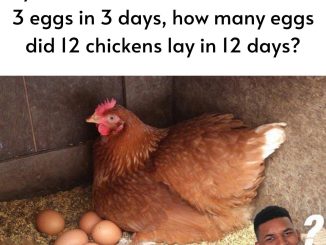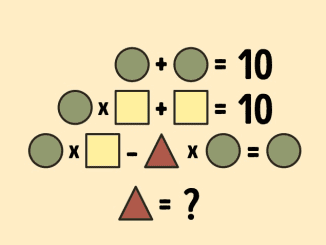Let’s be honest—dreams are weird. One moment you’re flying over mountains, the next you’re late for a test you didn’t study for in a school you don’t even attend anymore. And yet, while they might seem like bizarre bedtime stories, dreams have fascinated scientists, philosophers, and mystics for centuries. But what do they really mean? More importantly—why do we even dream in the first place?
With breakthroughs in neuroscience and brain imaging, we’re getting closer to answers. And while we’re still piecing together the full picture, there’s a lot we do know.
What Actually Happens When You Dream?

Dreams typically happen during REM sleep (Rapid Eye Movement)—the stage when your brain becomes incredibly active. Despite your body being relaxed and almost paralyzed, your brain is lit up like it’s watching a movie on fast-forward.
In REM sleep, parts of the brain that process emotion, memory, and visuals become hyperactive. This might explain why dreams often feel intense, emotional, or cinematic. And no, it’s not just random chaos—there’s a method to the madness.
Are Dreams Just Mental Static?
One theory is that dreams are the brain’s way of filtering random neural activity. Like mental static or leftover signals, your brain might be pulling together pieces of your day—faces you saw, feelings you had, things you heard—and stitching them into a narrative that often makes no sense at all.
In this view, dreams aren’t meaningful, they’re just the byproduct of a busy, buzzing brain doing maintenance while you sleep.
But that’s only part of the story.
Dreams Help Us Process Emotions
Now we’re getting into deeper waters. Many experts believe dreaming plays a vital role in emotional processing. Think of your dreams as the night shift crew for your feelings.
During REM sleep, your brain seems to revisit emotional experiences from the day and process them. That’s why you might dream about a stressful conversation, a recent breakup, or an exciting event. It’s like your subconscious is trying to make sense of it all while you’re off-duty.
Video : The Strange Science of Why We Dream
And the science backs this up—dreaming can actually reduce the emotional charge of difficult experiences. That might be why a tough day often feels more manageable after a good night’s sleep.
Could Dreams Be Practice Runs for Real Life?
Here’s a fascinating idea: what if dreams are your brain’s way of rehearsing real-life scenarios?
This is called the threat simulation theory. According to this idea, your brain uses dreams to run drills. Being chased in a dream? Maybe that’s your mind simulating a high-stress situation, testing how you’d react.
It’s like training for life’s chaos in the safest environment possible—your bed. And while it might sound out there, it makes evolutionary sense. Practicing danger without risk could be a survival advantage.
Dreams Might Clean and Sort Your Memories
Ever heard the phrase “sleep on it”? There’s real science behind that.
During REM sleep, your brain doesn’t just play back your memories—it sorts, stores, and discards them. Think of it like organizing your mental closet. Important stuff gets folded and filed. Junk gets tossed.
This process helps with memory consolidation, which is why pulling an all-nighter before a big test is usually a terrible idea. No REM sleep = poor memory storage.
Why Do Dreams Feel So… Dreamlike?

One word: logic.
During REM sleep, the logical part of your brain—the prefrontal cortex—chills out. That’s why dreams don’t follow the rules of reality. You can breathe underwater, time jumps around, and people morph into other people.
It’s also why dreams can be wildly creative. With logic out of the way, your brain is free to explore ideas without constraints. Many artists, scientists, and inventors have credited dreams with sudden breakthroughs.
So… Why Do We Dream, Really?
Here’s the honest answer: we don’t fully know yet.
But current research suggests dreaming is multifunctional. It’s probably not one thing but many:
- Emotional processing
- Memory consolidation
- Problem-solving
- Threat rehearsal
- Creative inspiration
- Stress relief
Far from being meaningless, your dreams could be playing a central role in how you think, feel, and function.
How to Get the Most Out of Your Dreams
If dreams are that valuable, can we influence them? Actually, yes.
- Sleep more and better: More REM sleep = more dreams. Aim for 7–9 hours nightly.
- Keep a dream journal: Write down what you remember as soon as you wake up. This improves recall and helps you notice patterns.
- Limit alcohol and screens: Both reduce REM sleep. A nightcap might knock you out, but it also robs you of deep dreaming.
- Try lucid dreaming: With practice, you can learn to become aware during dreams and even control them. Wild, right?
Video : The surprising health benefits of dreaming
Final Thoughts
Dreams might feel random, wild, or even useless—but modern science paints a different picture. Your dreams could be doing deep emotional work, cleaning up your memories, training your instincts, or unleashing creativity while you rest.
So the next time you find yourself in a strange dream—on a rollercoaster made of pizza or talking to your pet goldfish—don’t dismiss it as nonsense. Your brain might just be doing one of the most important jobs it can.


